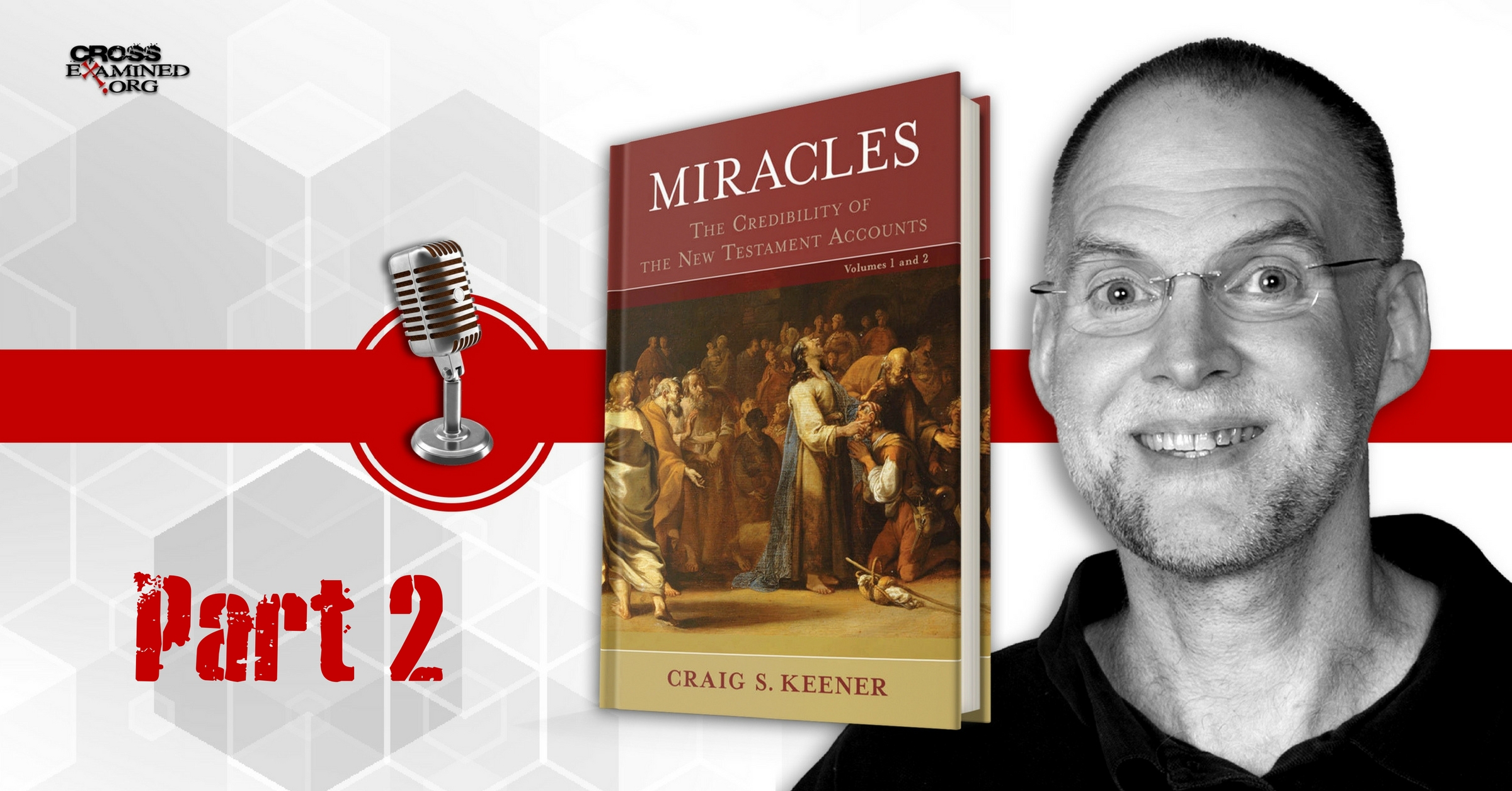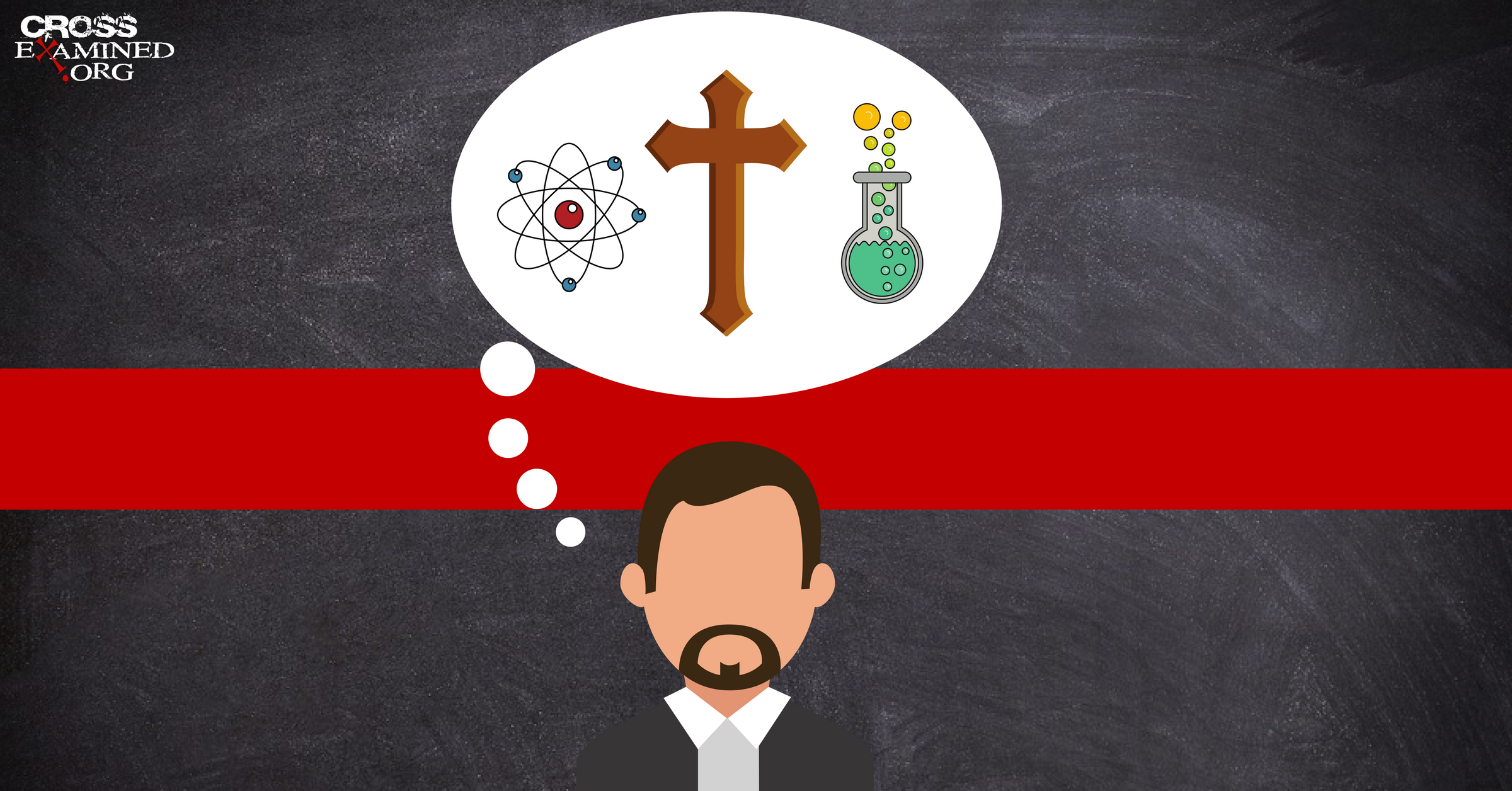By Evan Minton
In the previous blog post, I explained what the minimal facts approach was, and how it employed standard historical criterion to the New Testament text rather than it being a “Thus sayeth The Lord” approach. The New Testament is used, but only as an ancient set of documents, not as scripture. Additionally, the minimal facts approach employs a two-step process (1) Determining the facts to be explained and (2) Determining the best explanation of those facts. At this stage of the game, we are determining the facts to be explained.
Of the 5 minimal facts that there are, the first one is this: Jesus died by Roman crucifixion. What historical evidence is there to establish this as a historical fact?
Reason 1: Jesus’ Death By Crucifixion is multiply attested
Jesus’ death by Roman crucifixion is overwhelmingly multiply attested. It is mentioned in 4 secular sources, the synoptic gospels, John’s gospel, and Paul’s epistles.
Source 1: Josephus
The first-century Jewish historian named Flavius Josephus (37-100 A.D) wrote about Jesus’ crucifixion in his book Antiquities Of The Jews in book 18. Josephus wrote: “Now, there was about this time, Jesus, a wise man, if it is lawful to call him a man, for he was a doer of wonderful works, a teacher of such men as receive the truth with pleasure. He drew over to him both many of the Jews and many of the Gentiles. He was [the] Christ; and when Pilate, at the suggestion of the principal men amongst us, had condemned him to the cross, those that loved him at first did not forsake him, for he appeared to them alive again the third day, as the divine prophets had foretold these and ten thousand other wonderful things concerning him; and the tribe of Christians, so named from him, are not extinct at this day.”
Here we have a first century, non-Christian historian saying that a man named Jesus existed, drew a crowd of people who listened to His teachings, but was killed by Roman crucifixion under the governor Pontius Pilate at the request of “some of the principal men among us” which we can infer to be the Jewish Sanhedrin. This is historical evidence for the crucifixion of Jesus coming from a source with no theological ax to grind.
Now, some skeptics will object that this passage, known as “The Testimonium Flavianum,” really isn’t good historical evidence for the crucifixion because the passage seems to have been interpolated by a Christian scribe. I would agree that it has clearly been interpolated by Christian scribes as would a large number of historians and scholars who study ancient history. We have no evidence that Josephus ever became a Christian, so it would highly unlikely that he would say things like “If it be lawful to call him a man” for such a sentence implies that Jesus was more than human, or that Josephus would say “He was the Christ” as this is an explicit declaration that Jesus is the Messiah, a statement only a Christian would make. What’s worse is that near the very end of this passage, Josephus says that Jesus rose from the dead! Again, only Christians believe Jesus rose from the dead. Josephus, being a non-Christian, would never make these statements. This passage was obviously altered by a scribe who did believe these things; a Christian scribe.
But while I agree with the skeptic that the Testimonium Flavianum was altered by a Christian, I don’t believe it follows that we can’t use this passage as extra-biblical evidence for the death of Jesus. The majority of scholars today hold the position that The Testimonium Flavianum was only partially interpolated. That is to say; most of the passage is legitimate (it’s not like a Christian scribe made the entire Testimonium Flavianum up, but only certain phrases were inserted by a Christian scribe. There are two primary arguments that historians give for adopting this “Partial Interpolation” view.
*When You Remove The Obvious Christian Additions, The Passage Remains Coherent
Christopher Price wrote “Perhaps the most important factor leading most scholars to accept the partial-authenticity position is that a substantial part of the TF reflects Josephan language and style. Moreover, when the obvious Christian glosses — which are rich in New Testament terms and language not found in the core — are removed or restored to their original the remaining core passage is coherent and flows well. We can be confident that there was a minimal reference to Jesus… because once the clearly Christian sections are removed, the rest makes good grammatical and historical sense. The peculiarly Christian words are parenthetically connected to the narrative; hence they are grammatically free and could easily have been inserted by a Christian. These sections also are disruptive, and when they are removed the flow of thought is improved and smoother.”[1]
I think that Price is right. Compare the clearly interpolated version of the Testimonimum Flavianum which I included above with the version below:
“Now, there was about this time, Jesus, a wise man, for he was a doer of wonderful works,–a teacher of such men as receiving the truth with pleasure. He drew over to him both many of the Jews and many of the Gentiles. And when Pilate, at the suggestion of the principal men amongst us, had condemned him to the cross, those that loved him at the first did not forsake him, and the tribe of Christians, so named from him, are not extinct at this day.”
You can see that the flow of thought isn’t bothered by the removal of the obvious Christian additions. How often is it that you can erase whole sentences from a paragraph and still have it make complete sense? Not often. On this basis, therefore, it’s highly probable that there was an original passage about Jesus’ crucifixion and it did not include phrases that expressed belief in his messiahship and resurrection.
*The Reference to James the Brother of Jesus Suggests an Earlier Reference to Jesus
Later on in Josephus’ writings, Josephus makes a reference to Jesus’ brother James and records his martyrdom at the hands of the Jewish Sanhedrin. While the Testimonium Flavianum is hotly debated, I know of no scholar who doubts the validity of Josephus’ reference to James. The reference to James’s Martyrdom increases the likelihood that the Testimonium Flavianum is also valid. In Josephus’ reference to James, he refers to Jesus as “the so-called Christ” without further explanation. That’s all he says. All he says about James is that he’s the brother of “Jesus, the so-called Christ.” In the passage about James, Josephus doesn’t go into any explanation of who Jesus was, what He did, no claims of Him dying and rising from the dead, no mention of any miracles, or anything like that. The only thing Josephus says about Jesus in this latter passage is that He’s James’ brother. What this implies is that Josephus presupposed that his readers already knew who he was referring to. But why would Josephus make such a presupposition? If The Testmonium Falvianum is legitimate, then it makes sense why Josephus assumes his readers already knew who he was talking about; i.e. because He already briefly explained who Jesus was and what He did earlier.
For these and other reasons, most scholars think that the Testimonium Flavianium is an authentic passage. If it’s an authentic passage, then we can certainly use it as evidence for the existence and crucifixion of Jesus. However, even if the Testimonium Flavianum couldn’t be used, that wouldn’t hurt our case very much as we would still many other sources that record the event, as you’ll see below.
Source 2: Tacitus
Tacitus was a Roman historian writing in the early second century. In the 15th volume of his work Annals, Tacitus recounts the terrible burning down of Rome by Emperor Nero and mentions how he tried to get the suspicions off of himself and onto the Christians by unleashing a terrible persecution against them. It is in this passage that he makes a reference to Jesus’ crucifixion. The Annals of Tacitus dates to AD 115. Tacitus writes “Christus, the founder of the name, was put to death by Pontius Pilate, procurator of Judea in the reign Of Tiberius…” (Cornelius Tacitus, Annals, 15:44)
Source 3: Mara Bar Serapion
Mara Bar-Serapion was a Syriac stoic philosopher in the Roman province of Syria. At some point, he was arrested, and while in prison, he wrote a letter to his son. In this letter, mentions how wise teachers who were persecuted and killed for their teachings were eventually avenged by God. He rhetorically asked what the Athenians gained from putting Socrates to death and then mentioned how famine and plague came upon them, for example. As for Jesus, Mara wrote: “What did the Jews gain from murdering their wise king? It was after that that their kingdom was abolished.”[2]
About this passage, Josh and Sean McDowell write “Though Mara never uses Jesus’ name, we can be certain he is referring to him because no one else at that point in history would fulfill the requirements of being known as a “wise king” who was killed by the Jews shortly before they were driven from the land. Jesus is obviously in view.”[3]
Source 4: Lucian Of Samosata
Lucian Of Samosata was a second-century Greek satirist. In one of his works, he wrote of the early Christians as follows: “The Christians… worship a man to this day—the distinguished personage who introduced their novel rites, and was crucified on that account…” (Lucian of Samosata, from the book The Passing Peregrinus)
Source 5: The Synoptic Gospels
Everyone knows that the synoptic gospels (i.e. Matthew, Mark, and Luke) refer to the crucifixion of Jesus, so I don’t see any need to unpack this sub-subsection any further. I will clarify one thing though; the reason I’m throwing the synoptic gospels together as a single source is that many scholars believe that Luke borrowed material from Matthew who in turn borrowed from Mark. There is some good evidence that this is the case, such as the fact that there are passages in the Synoptics that read identically to one another.
Source 6: The Gospel Of John
The gospel of John likewise tells us that Jesus died by Roman crucifixion. Most scholars believe that John was writing independently of the other 3 gospels. Therefore, I treat John as an independent source.
Source 7: The Epistles Of Paul
Paul’s epistles mention the crucifixion of Jesus.
In all, we have at least 7 early sources that state that Jesus died by Roman Crucifixion. 4 of those sources are secular in nature, and 3 of them come from The New Testament.
According to the principle of multiple attestations, this makes it extremely, extremely probable that Jesus’ death on a Roman cross at the hands of Pontius Pilate was a real event of history. The principle of multiple attestations says that if you find any event mentioned in two or more sources, it is more likely that the event actually occurred. This is because the more and more independent sources an event is mentioned in, the less and less likely it is to be made up. Think about it: how likely is it that SEVEN INDEPENDENT SOURCES all made up the same fictional story? Seven independent historians! Do you honestly expect me to believe that seven independent writers all just happened to make up the same thing? That is statistically impossible! It is statistically impossible for 7 independent writers to all make up the same event and treat it as history!
Jesus’ death by Roman crucifixion is multiply, multiply, multiply attested, and this makes it extremely probable that the event actually occurred. If this criterion of authenticity were the only one this minimal fact passed, it would be enough to conclude it occurred.
Paul Maier, retired distinguished professor of ancient history at Western Michigan University said “Many facts in the ancient world are established on one source. Two or three sources often make an event impregnable.”[4] Two sources? You can’t beat it. That’s how source material works in ancient history. Meyer says two independent sources make the historical event “impregnable.” But we don’t have two sources here; we have seven!
Reason 2: Jesus’ Crucifixion Is Enemy Attested
Moreover, not only is Jesus’ death by crucifixion multiply attested in seven independent documents, but it’s also enemy attested. Those who are your enemies are not likely to say things to help your cause. People who are hostile to you are not going to say things to make you look good or to bolster your cause. We have enemy attestation when it comes to Jesus’ crucifixion. Neither Tacitus nor Lucian Of Samosata was friendly to Christianity. In Tacitus’ account, he calls Christianity a “pernicious superstition”! Lucian was ridiculing Christians in the very same passage in which he affirms that Jesus died by crucifixion! So, in addition to multiple attestations in seven independent sources, we have enemy attestation in two of those sources!
Reason 3: The Principle Of Historical Fit
Moreover, the principle of historical fit comes into play here. We know for a fact from the writings of ancient first-century authors like Josephus, Tacitus, and even Archeology (e.g. the Yehohannan discovery from 1975), that Romans crucified people back in the first century. And we know that one of those reasons was in the case of treason. Jesus being crucified on the grounds of claiming to be the Messiah fits right in with what we know of Roman executions.
Reason 4: Only Women Had The Guts To Stick With Jesus In His Final Hours
If you were making up a story of any kind, you most likely wouldn’t depict yourself, your friends, or people you respected in a bad way. You wouldn’t make up lies about them that hurt them or made them look bad. If you were going to lie, you’d make up things to help them or to make them look good. This is why the principle of embarrassment counts in favor of an event’s historicity. The principle of embarrassment gives us good grounds to believe the crucifixion of Jesus occurred in three different ways.
John 19 records Jesus’ crucifixion. However, John writes “So the soldiers took charge of Jesus. Carrying his own cross, he went out to the place of the Skull (which in Aramaic is called Golgotha). There they crucified him, and with him two others—one on each side and Jesus in the middle. Pilate had a notice prepared and fastened to the cross. It read: Jesus of Nazareth, the king of the jews. Many of the Jews read this sign, for the place where Jesus was crucified was near the city, and the sign was written in Aramaic, Latin, and Greek. The chief priests of the Jews protested to Pilate, ‘Do not write ‘The King of the Jews,’ but that this man claimed to be king of the Jews.’ Pilate answered, ‘What I have written, I have written.’ When the soldiers crucified Jesus, they took his clothes, dividing them into four shares, one for each of them, with the undergarment remaining. This garment was seamless, woven in one piece from top to bottom. ‘Let’s not tear it,’ they said to one another. ‘Let’s decide by lot who will get it.’ This happened that the scripture might be fulfilled that said, ‘They divided my clothes among them and cast lots for my garment.’ So this is what the soldiers did. Near the cross of Jesus stood his mother, his mother’s sister, Mary the wife of Clopas, and Mary Magdalene. When Jesus saw his mother there, and the disciple whom he loved standing nearby, he said to her, ‘Woman, here is your son,’ and to the disciple, ‘Here is your mother.’ From that time on, this disciple took her into his home.” – John 19:16-27
John records that 3 women stayed with Jesus during his final hours; Jesus’ mother Mary, Mary Magdalene, and Mary, the wife of Clopas (there were a lot of women named Mary in first century Israel). The only male disciple that John records as sticking with Jesus is himself. According to Mark’s account, the rest of the disciples all ran away in terror when the Romans came to arrest Jesus (Mark 14:43-52). The fact that most of the disciples abandoned Jesus in his darkest hour is not something the gospel writers would have made up. It gets worse when you consider that women are mainly those stay behind. In first century Jewish culture, women were considered second-class citizens, and Josephus says that they weren’t even allowed to witness in a Jewish court of law (more on this in the next blog post). In light of this fact, how remarkable it is that it is women who stay by Jesus’ side in his final moments rather than the male disciples! If John were making this up, he would have included at least a few other of the male apostles with him. Yet John puts the women in a good light and most of the men in a bad light! The women are the brave ones, and the men are cowards!
Reason 5: Jesus Was Killed In The Most Humiliating Way
As I said above, If you were making up a story of any kind, you most likely wouldn’t depict yourself, your friends, or people you respected in a bad way. The gospel writers, whoever they were, clearly respected, Jesus. Why would they make up a story about his death that was considered at that time to be the most degrading and humiliating way to die. I mean, these people thought Jesus wasn’t just the Messiah, but God incarnate (John 1:1-3, 14)! Why would you write a story about your own God that demeans Him?[5]
As Dr. Gary Habermas said “Our Lord was killed like a slave? And, he had the best arguments in the universe, and he never opened His mouth? …..He might possibly have been crucified nude. May have happened. Didn’t always happen to crucified victims, but it did sometimes. We have a tendency to not add embarrassing things about those we love, and there are many.”[6]
Put yourself in the shoes of a first century Jew. If you were going to make up a story of your leader dying and rising, wouldn’t you at least have him be killed in a more dignified way? Stoning was one way Jews killed people back in the first century, as we know from the book of Acts (chapter 7) and Josephus’ (Antiquities of The Jews, book 20, regarding James’ martyrdom by stoning). Maybe it’s just me, but I think being killed by having a large rock thrown at your head is a far more dignified way to die than being nailed to a stake either half-naked or fully naked. The gospel authors, if they were making up the story of Jesus’ death, would most likely have had him die by stoning.
So, once again, the principle of embarrassment gives us good reason to believe the first minimal fact is true.
Reason 6: Multiple Literary Form
Different Kinds Of Stories about Jesus’ Death. Jesus’ death is recorded in different books of different genres of the first century. The genres are Miracles, Parables, Creeds, Didactic, Greco-Roman Biography, and Apocalyptic.
The Greco-Roman biographies would obviously be the gospels: Matthew, Mark, Luke, and John.
The apocalyptic genre would be the book of revelation in which Jesus shows up in Revelation 5 as a wounded lamb, and Jesus was very likely as the child born in the wilderness in chapter 12.
Creeds — We’ll talk more about creeds in part 5 of this blog post series, but Jesus’ crucifixion is mentioned in the early resurrection creed cited in 1 Corinthians 15, and in the creed cited in Philippians 2.
Parables — Jesus’ death is told in The Parable Of The Wicked Tenants (Luke 20:9-16).
Didactic – Jesus’ crucifixion is mentioned in Peter’s sermon in Acts 2. See Acts 2:36
Reason 7: The King Of The Jews and The Principle Of Dissimilarity
When the Romans were crucifying Jesus, they nailed a plaque above his head that read “The King Of The Jews” (Mark 15:26, John 19:19). We know that this is historical on the basis the principle of dissimilarity. “The King Of Jews” was never a title used for Jesus by the early church. If this title was just made up by the early church and retroactively inserted into the story of Jesus’ crucifixion, then we would expect the early church to call Jesus “The King Of The Jews” a lot more frequently than we do, but in fact, the early church never called Jesus by this title. Indeed, Jesus isn’t even called “The King Of Jews” in any other place in the synoptic gospels, or the gospel of John except for this one place! Additionally, none of the New Testament epistles call Jesus by this title! If this title was just made up by the early church and retroactively inserted into the story of Jesus’ crucifixion, then we would expect the early church to call Jesus “The King Of The Jews” very frequently. Therefore, by the principle of dissimilarity, we have good reason to believe that this plaque really was nailed above Jesus’ head while he was being crucified, which of course entails that Jesus actually was crucified.
Reason 8: “Why Hast Thou Forsaken Me” — Principle Of Embarrassment
In Matthew 27, Matthew’s account of Jesus’ death on the cross, Jesus cries out “My God! My God! Why have you forsaken me?” we can conclude that this is an actual utterance of Jesus on the basis of the criterion of embarrassment. Why would Matthew make Jesus ask God why He has forsaken him? It makes it seem as though Jesus doesn’t know why he’s being crucified even though he’s recorded as predicting it earlier (Matthew 20:17-19) and even said why he had to die (Matthew 20:28). Why would Matthew make this saying up? It just raises too many questions. Even today, this saying of Jesus strikes people as something odd for him to say. After all, he predicted his death and even explained why it had to take place, why is he all of a sudden crying out “Why”?
Now, I do think there’s a satisfying explanation for why Jesus said this. It’s the first verse of Psalm 22 verbatim. Most biblical scholars consider this to be a prophecy of the way the Messiah would die. When you compare the contents of Psalm 22 with what happened to Jesus in the gospels, there are striking similarities, but I won’t go into them now. I’ll leave it up to you to look into that yourself. Jesus was calling attention to this Psalm in order to proclaim to the people that he was fulfilling yet another messianic prophesy.
Nevertheless, even though an explanation exists for this cry of Jesus’, wouldn’t it be easier for Matthew to just omit it altogether rather than go through the trouble of explaining it? Certainly. And that’s why we can conclude that Jesus actually made this statement. Of course, since the context of this statement is Jesus dying by crucifixion, that logically entails that the crucifixion actually occurred as well.
Summary and Conclusion
We’ve seen that the historical evidence for Jesus having been executed via Roman crucifixion is overwhelming. Jesus’ death by Roman crucifixion is multiply, multiply, multiply attested in 7 independent sources. 4 of those sources are secular, and 3 of them are from The New Testament. It is statistically impossible for 7 different writers to all fabricate the same fictional event and then treat it as history. Moreover, Jesus’ crucifixion is enemy attested by two secular sources (Tacitus and Lucian), sources that were actually ridiculing Christianity in the same breath that they affirm the historicity of Jesus’ crucifixion. Moreover, Jesus’ death is coherent with the well-established facts of Roman history. Moreover, Jesus’ crucifixion meets the criterion of embarrassment in three different ways; (1) John makes women the brave ones to stay by Jesus’ side during his final hours while the disciples abandoned him, and (2) If you’re going to make up a story about someone you cherish dying, you’d make the specific way he died much more dignified. Roman crucifixion was not only an extremely painful way to die, but it was an extremely shameful way as well. Additionally, “My God! My God! Why Have You Forsaken Me” is an awkward saying of Jesus, so it’s unlikely to be made up. Also, Jesus’ death is told in multiple literary forms. Finally, the principle of dissimilarity supports the historicity of the crucifixion because a title is ascribed to Jesus that isn’t ascribed to him anywhere else, in The New Testament or in the writings of the early church fathers.
Of the 5 minimal facts, the death of Jesus on a cross is the one that I don’t think I’ll ever doubt. The evidence for it is so overwhelming and so plenteous, it passes so many of the principles of historical authenticity in so many different ways, that I am baffled how anyone could possibly deny it. In fact, no one does. At least not among scholars. The only people who deny that Jesus existed and died via Roman crucifixion are laymen.
The agnostic historian Bart Ehrman states that “One of the most certain facts of history is that Jesus was crucified on orders of the Roman prefect of Judea, Pontius Pilate. “[7] The highly critical scholar of the Jesus Seminar, John Dominic Crossan, writes, “That he was crucified is as sure as anything historical can ever be.”[8] Like Ehrman, Crossan is not a Christian. Yet both Ehrman and Crossan agree that Jesus’ death by crucifixion is a historical fact. Gerd Ludemann, an atheist historian, said: “Jesus’ death as a consequence of crucifixion is an indisputable fact.”[9]
Now, why did I go to such lengths to establish the historicity of Jesus’ crucifixion? One reason is that you have to have a death before you can have a resurrection. Additionally, most of the people who will be reading this blog post series are not scholars or trained historians, but laymen. And many of them deny that Jesus even existed altogether, but much less died on a cross. But among scholars, both Christian and non-Christian, the crucifixion of Jesus is just taken for granted.[10] It isn’t even debated among Christian and Non-Christian scholars. I think that’s why Dr. William Lane Craig skips this one and goes right to Jesus’ burial or the empty tomb. Which, by the way, is the next minimal fact in our case that we’ll examine.
Notes
[1] From the online article “Did Josephus Refer To Jesus?” by Christopher Price http://bede.org.uk/Josephus.htm
[2] British Museum, Syriac Manuscript, Additional 14,658
[3] McDowell, Josh; McDowell, Sean. Evidence That Demands a Verdict: Life-Changing Truth for a Skeptical World (p. 150). Thomas Nelson. Kindle Edition.
[4] Paul L. Maier, In the Fullness of Time: A Historian Looks at Christmas, Easter, and the Early Church (San Francisco: Harper Collins, 1991), 197.
[5] The American Biblical Scholar John P. Meier makes this same argument in “How do we decide what comes from Jesus” in The Historical Jesus in Recent Research by James D. G. Dunn and Scot McKnight 2006 ISBN 1-57506-100-7 pages 126–128
[6] Dr. Gary Habermas, transcribed from the lecture “Evidence For The Minimal Facts,” given at The National Conference On Christian Apologetics, October 14th, 2017.
[7] A Brief Introduction to the New Testament by Bart D. Ehrman 2008 ISBN 0-19-536934-3 page 136
[8] See John Dominic Crossan, Jesus: A Revolutionary Biography (San Francisco: HarperCollins, 1991), 145; see also 154, 196, 201.
[9] Dr. Gerd Ludemann, “The Resurrection Of Christ: A Historical Inquiry,” 2004, page 50.
[10] See RE Brown, The Death Of The Messiah, 1994, page 1373
Original Blog Source: http://bit.ly/2Hq7aw3










